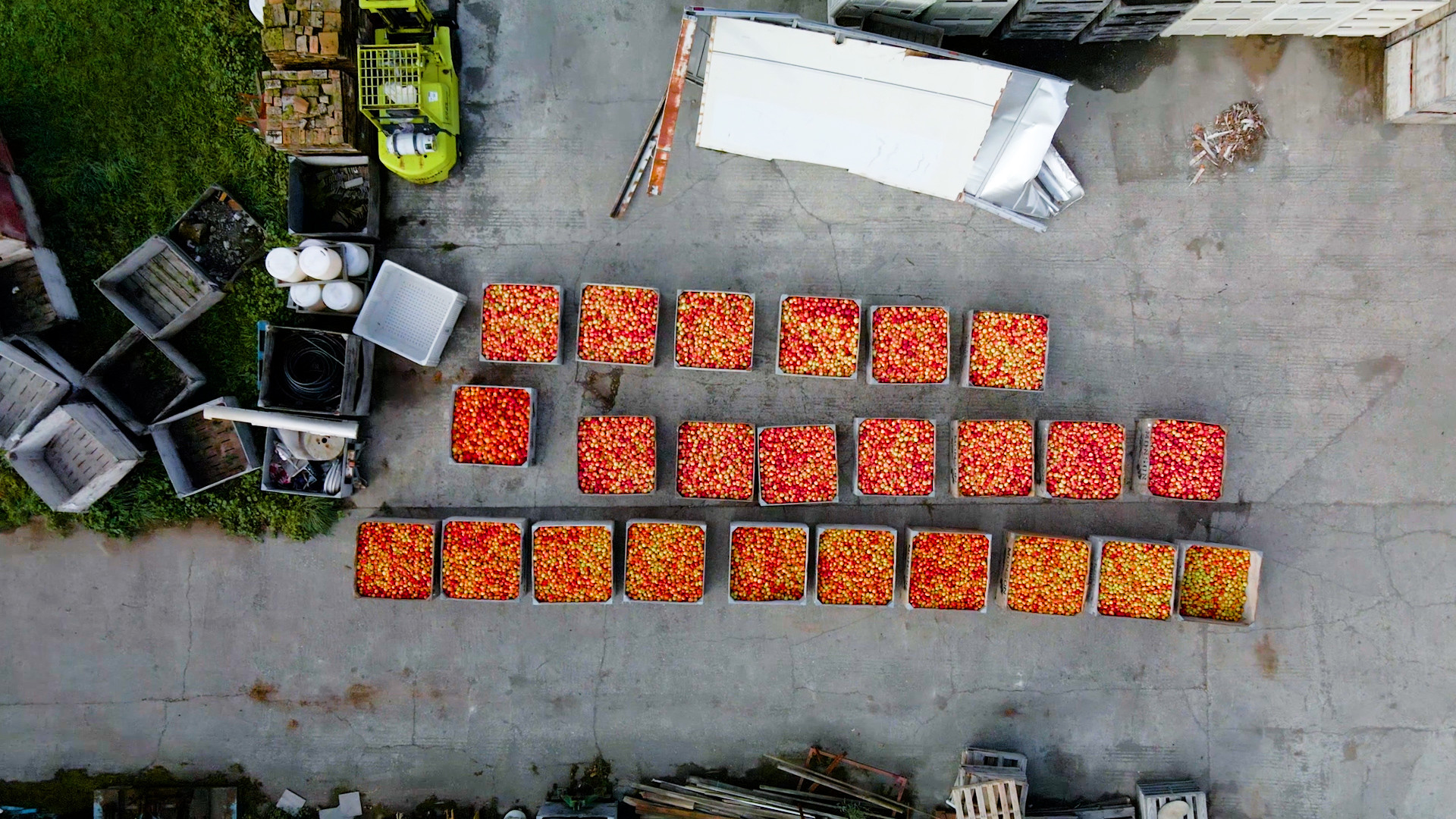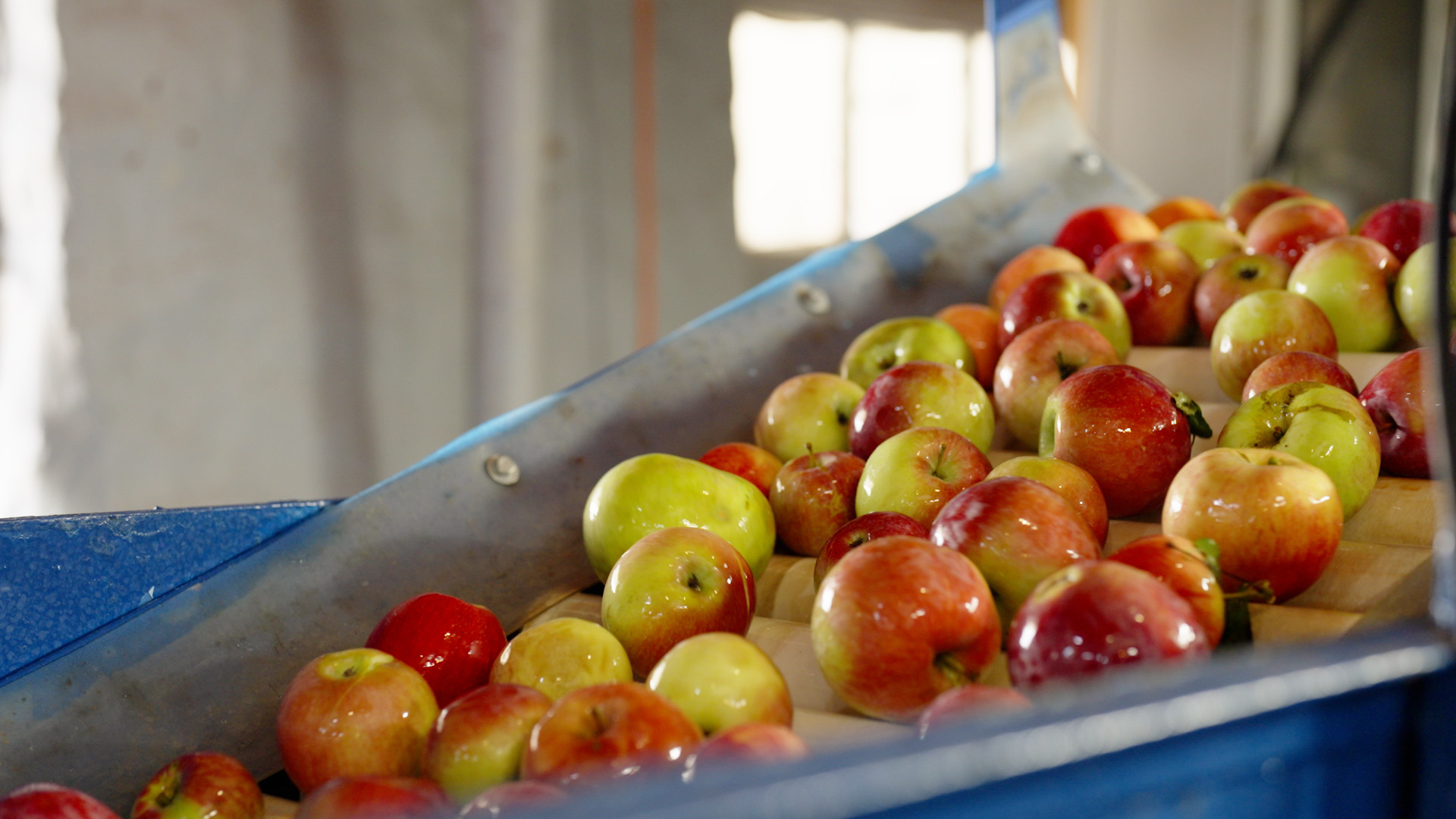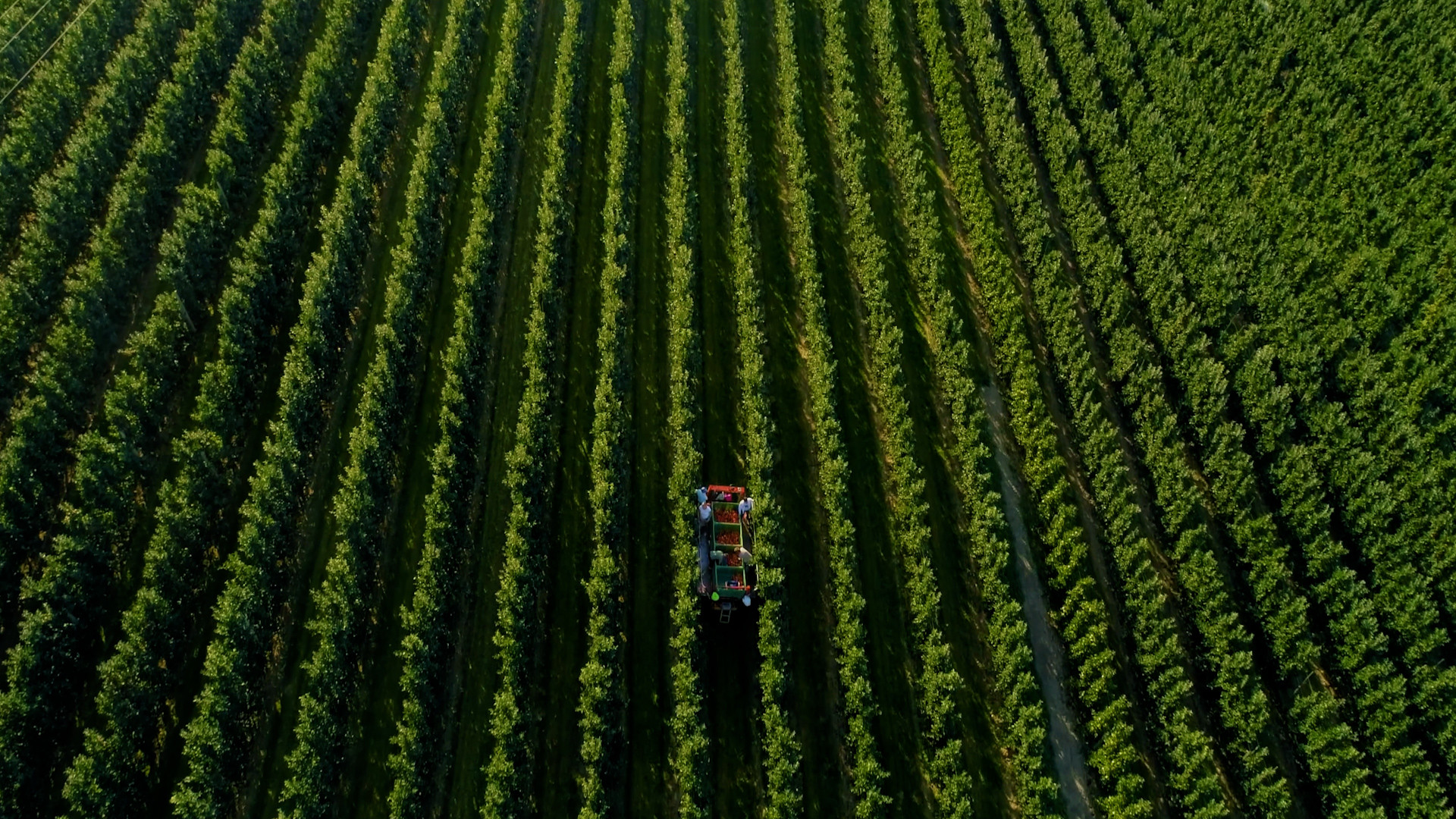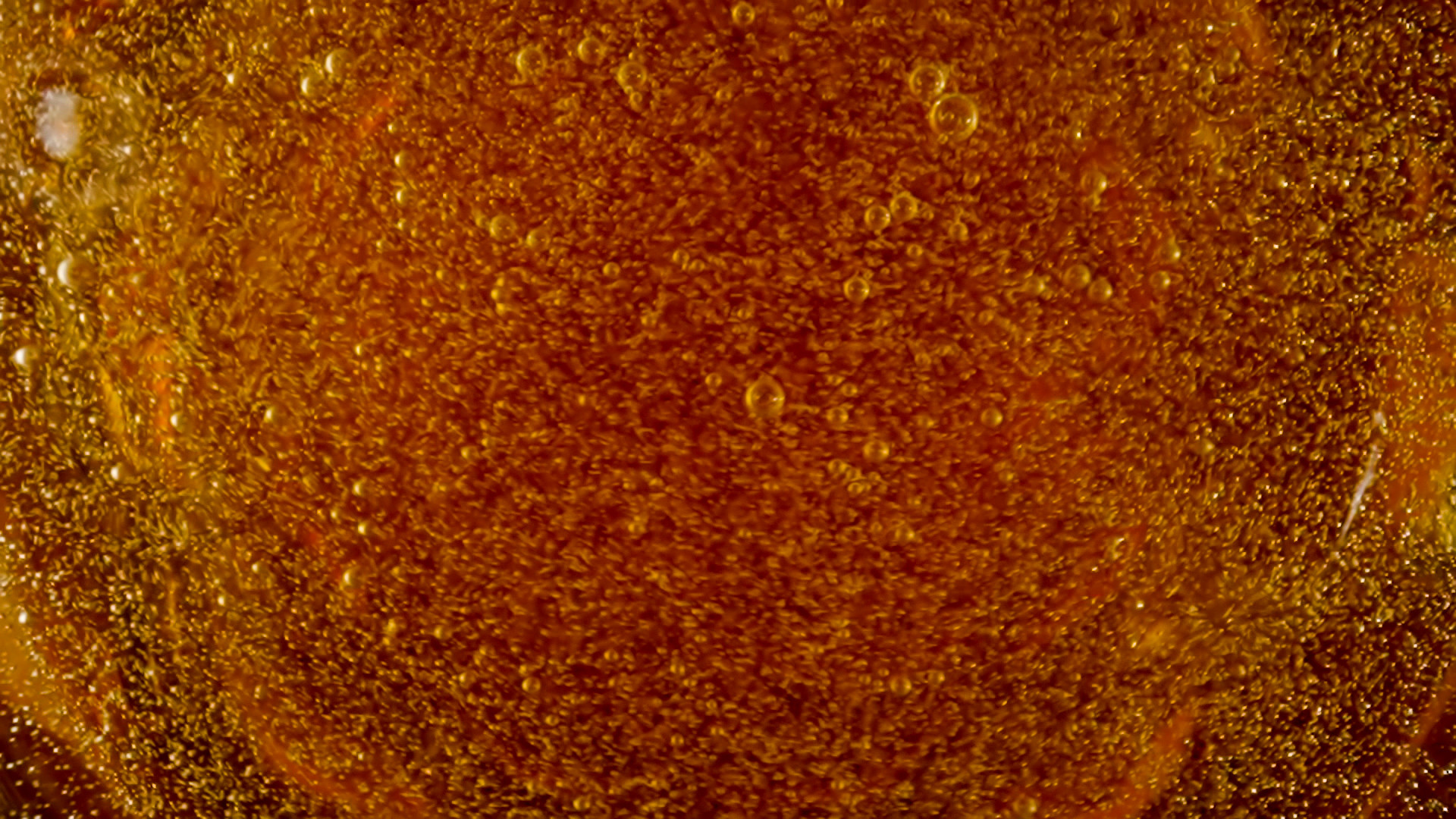Michigan is an apple lover’s paradise, and Michigan State University researchers and Extension specialists are helping growers across the state make the most of their harvests. From apples, apple cider and hard cider production, MSU provides information, education and support to Michigan apple farmers and helps them participate in growing industries.
The state ranks third in the nation for apple production, with more than 14.9 million apple trees covering 34,500 acres on 775 family-run farms, according to the Michigan Apple Committee.
Some of the most common apple varieties grown in Michigan include Fuji, Gala, Golden Delicious and Red Delicious, Honeycrisp, Jonathan and McIntosh.
When choosing an apple you’d like to eat, you might choose a sweet Honeycrisp, or if you are going to bake an apple pie, you might pick a tart Granny Smith. For hard cider makers, choosing the perfect apple or combination of apple varieties isn’t so simple. Even more challenging is trying to find the perfect blend of sweet and bitter flavors to make their hard apple cider stand out. Until now.
Researchers at MSU have compiled data on more than 800 apple varieties to create a reference chart for cider makers that helps them develop their ideal recipe. The grid shows how different apple varieties are classified based on four quality traits that make apples desirable for hard cider production: sweetness, acidity, pH and bitterness (total phenolic content).
“What started out as a simple survey of apple varieties grown in Michigan and New York turned into actively collecting all of the data that exists in the published scientific literature about these traits to put them together in a useful way,” says Joshua VanderWeide, an assistant professor in the College of Agriculture and Natural Resources and the Berry Crops Physiology Laboratory. “We have put together the largest database of fruit quality traits for apples that are important to both growers and researchers.”
This research involved a mix of collecting existing data from the published literature and getting hands-on in the field. For Christopher Gottschalk, who was a graduate student at MSU during the research and is now an apple geneticist with the USDA’s Agricultural Research Service, that meant collecting apples for testing.
“I would go to either orchards in Michigan or orchards in New York, and I would collect the fruit, making sure we were sampling it at its ideal time,” says Gottschalk. “We were interested in learning whether an Otterson apple grown in Michigan tasted different than an Otterson apple grown in New York.”
Back at the labs (in the Department of Horticulture and at MSU’s winery at the horticulture farm), the apple samples were pressed, and the juice was collected for biochemical testing to see how each apple variety ranked.



